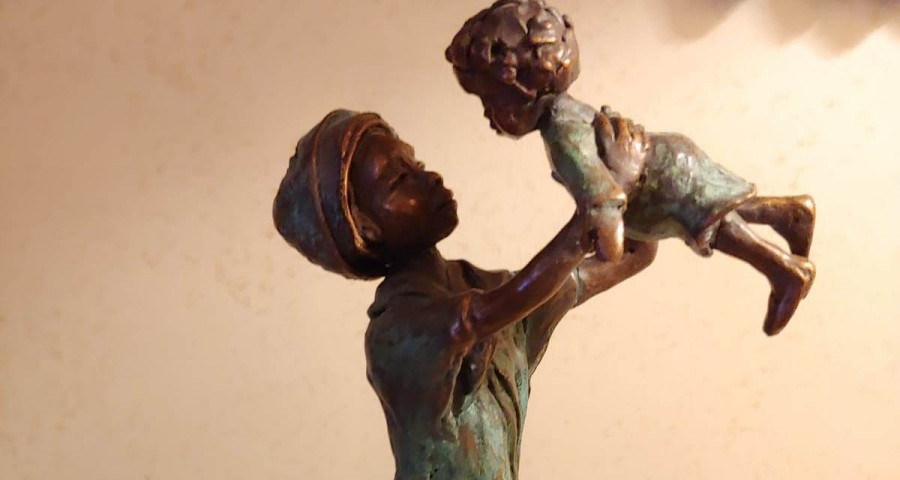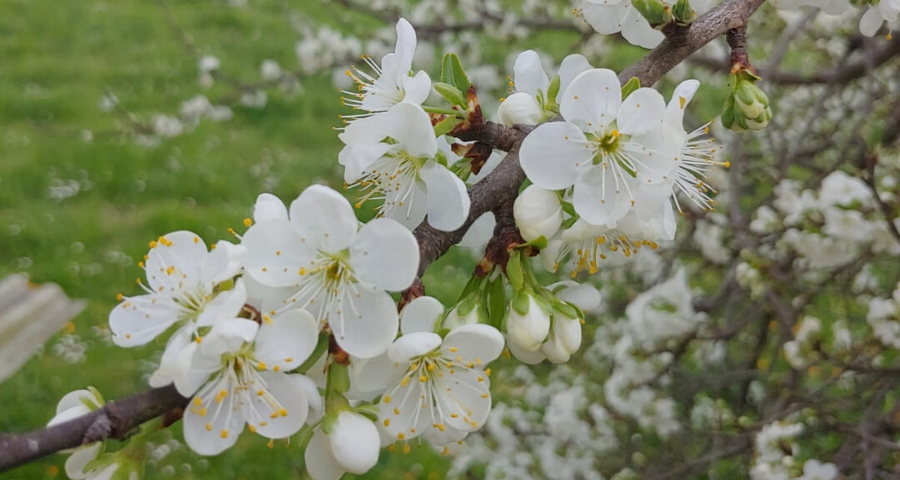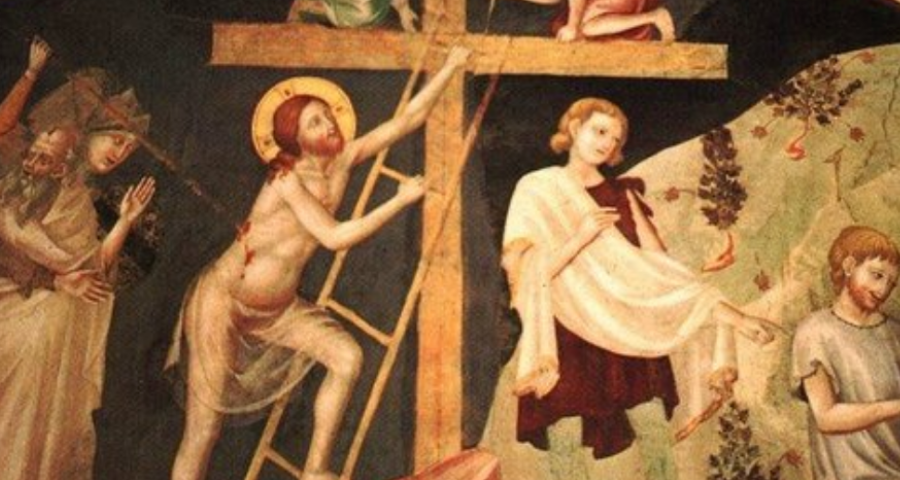Oikonomia/2 - Things are not God, but they can contain His signs and messages
By Luigino Bruni
Published in Avvenire 19/01/2020
«Capitalism is not, in the first place, an economic system of distribution of possessions or wealth, but an overall system of culture and life»
Max Scheler, The future of capitalism
It is not the multiplication of goods that multiplies the value of life and our wealth. Farmers and agriculture have always known this, idolatrous capitalism however has forgotten it.
The economic school of thought of Karl Marx is still an obligatory passage for those who want to investigate the sacred nature of our capitalism. His questions - minus his answers - are still capable of opening deep gashes in the economy of our time, allowing us to glimpse far reaching horizons that still haven’t been explored enough, especially since, about thirty years ago the collapse of real communism was thought to make Marx collapse as well, as if an author did not reach much further that the historical translation of his own thoughts. Both Walter Benjamin and Marx in their analysis of capitalist religion attribute a central role to products: to goods. In the beginning of the "Capital", Marx places the theme of the fetishist nature of goods at the very centre of his reasoning, one of the methodological pillars of his criticism. Fetishist character, that is commodities as a fetish.
Fetishes are an element of the sacred world, typical of the original and primitive stages of human religiosity. A fetish is an inanimate object, to which communities and individuals attribute magical or supernatural properties. The Portuguese word (feitiço) was used by modern navigators to indicate amulets and totems that they found among African people and tribes, and was later also partially extended to religious objects of a sacred type, to images of supernatural forces. When Marx used this expression to characterize commodities in capitalism, his reference to religion was very explicit and intentional. In fact, he wrote: "To find an analogy, we must fly in the nebulous region of the religious world. Here, the products of the human brain appear as independent figures, endowed with their own lives, who are in relationship with each other and in relationship with men. So, in the world of goods, they make products by the work of human hands. This is what I call the fetishism that attaches itself to the products of work as soon as they are produced with the objective to become commodities, and therefore inseparable from the production of commodities itself". (Capital, Book 1). As he also wrote in a separate note, quoting the Italian economist Ferdinando Galiani, "value is a relationship between people, hidden in the shell of a relationship between goods".
Marx sees goods as fetishes because they are inanimate realities that refer to something that is alive: to relationships between people. In past production systems, the commodity was immediately tied to its producer, but in the capitalist system we attribute an autonomous, almost magical or arcane existence to goods. Here then is the definition of commodity that Marx gives us: «At first glance, a commodity seems trivial, obvious. After analysing it, it turns out that it is a rather complicated thing, full of metaphysical subtlety and theological whims. ... As soon as it presents itself as a commodity, the tableaux changes into a sensibly oversensitive thing. Not only does it stand with its feet on the ground, but, in front of all other goods, it puts himself upside down, and begins to flails from its wooden head a number of crickets, decisively more admirable than if they spontaneously began to dance». The goods therefore acquire an existence of their own with respect to the men and women (and to the machines and robots) who produced them: this is what Marx calls arcane. Furthermore, to Marx, it is evident that this sort of religious power is activated only in capitalism: «As soon as we take refuge in other forms of production, all the mysticism of the world of goods disappears immediately, all the spell and witchcraft that surround products of labour with the fog based on the production of goods ". Mysticism, spells, witchcraft.
Actually, if we were to take this powerful image of commodities as a fetish seriously, we would immediately realize that the most suitable name for capitalism would really be idolatry, since fetishes are the inhabitants of the typical sacred environment of idolizing cults, not of religions, much less the Judeo-Christian one. But what is idolatry? And why has the Bible fought it so vehemently, and the prophets in particular made it their main enemy (along with false prophets)? Because behind their theological battle there is an added anthropological one: every time a man starts to worship an object, he becomes less of a man; because when trying to represent God in objects or images, we will never be able to match the only true and lawful images of God there are on earth: man and woman, created "in his own image". All other images of divinity are really theological and anthropological doodles. Therefore, there is also a great vein of humanism behind this anti-idolatrous battle.
This very same battle led the Bible to radically criticize all "natural" presences of God in the world, even erasing all traces of agricultural religious rites from its stories, such as mourning songs for the last sheaf or for the last bunch of grapes, where the farmers, crying, asked them forgiveness for having to "kill" them, asking them to please "rise" again in the new season. In some cultures the last sheaf was buried, the creed recited and then one waited for it to "rise". We must not forget that human beings learned and had the first intuitions of a life that could continue beyond natural death from the cycle of death and resurrection of the fields. And it is no coincidence that many fathers of the Church and many bishops have continued to recite these natural and agricultural prayers, intertwining them with the purely Christian ones. As in a Middle High-German Paternoster of the thirteenth century, quoted by Ernesto de Martino, where we read that Christ was "sown by the Creator, sprouted, matured, reaped, tied in a sheaf, transported to the farmyard, threshed, sifted, ground, placed in the oven, and finally after three days taken out and eaten like bread». It may not be perfect theology, but this Lord’s Prayer is splendid and as true as our people struggling in the countryside.
I still remember, as a child, hearing my great-grandparents reciting unlikely prayers in Latin mixed with Italian dialect, during harvest times or in mourning. They did not know the Trinitarian dogmas, they had very vague ideas about the ontological difference between Jesus and Our Lady Mary. When they took communion they knew nothing of "substance" and "accidents". But they knew that bread was bread, and therefore it was already sacred because life and death depended on it; and they understood that that bread of the Mass was a different bread, and hence taking communion had a solemnity and a theological density to them that I always pray I too will find, one day, even if it is my last one. Of course, we will always find theologians and scribes capable of fine reasoning with pieces of documents of the magisterium in their hands to support them in condemning the songs of the mourning of the sheaf and the prayers of my grandparents, to separate themselves from that world of ignorance and fetishes. But if there is a paradise - and there must be, and the poor must inhabit it - together with the psalms of the angels, we will also find the songs of the crop and the harvest, because they were made and mixed with real flesh and blood, and therefore truer than many polyphonic songs sung without the poor and without pain.
And that's why the Bible itself, while it vehemently fought the rites and symbols of fertility together with the astral ones, also leaves us with wonderful words about the moon, the stars, the skies "that narrate the glory of God", about the beauty of animals (Job), about eros and life (Canticle) in its poetic and sapiential pages. The biblical man sees God (without seeing him), hears him in the temple, listens to him through the prophets, sees him and hears him in man and woman, but he also sees and hears him in the "cloud", in the "pillar of fire", in the fire of Elijah, "in the light breeze of silence". To affirm its true diversity in a world dominated by a religion based on nature, the Bible had to absolutize its criticism of the religious dimension of things, of nature, of trees, of creation. But it never cancelled it, because it was true. I believe that a biblical prophet would have at the very least understood the phrase that Ishmael says while speaking of his idolatrous companion, Queequeg, in Moby Dick, Melville's (also theological) masterpiece: «How could I then join this idolatrous savage in the adoration of his piece of wood? But what is it to worship? Do you really believe, Ishmael, that the magnanimous God of heaven and earth - pagans and everyone included - can ever be jealous of an insignificant piece of black wood? Impossible! So what is worshiping?». No real dialogue with the world of animist religions, or with Hinduism, would be possible if we did not think something similar to what Ishmael says.
It is not by chance or by mistake that Catholicism developed and cultivated a sacramental vision of reality, where "things" can contain signs and messages that say something about God, without actually being God. The incarnation gave spiritual substance to history, and therefore to its things, to human work, to its artefacts. That young tree from the woods of Jerusalem, worked on by a carpenter of gallows, could not have known it but it entered, together with the nails, straight into the heart of the Trinity, forever. If it wasn’t so dramatic, it would merely make you smile, seeing the great defenders of the authentic faith lashing out against idolatry today (see Synod for the Amazon) because of the acts of syncretism that the poor have always done and continue to do, while not being troubled at all by the idolatry of capitalism, which they instead generally applaud. In reality, the idolatry of capitalism is much closer, in spirit, to that fought against by the Bible. Because, unlike the farming rites of our ancestors, who felt the true presence of the same God in the things surrounding them, the same hevel (nothing) of the scarecrow-idols criticized by Jeremiah lies under the goods of our rampant consumerism.
In the world of poverty, you can feel the sacred good held inside things - in the bread, in the wheat, in the wine, in the plants, in the few objects in people’s possession... – also because life and death flowed through those very few things. Our capitalism infinitely multiplies things, but does not multiply their value. If I have only one good dress, one good pen, one bicycle, one toy and these become one, two, three, ten, the value of the first dress and the first pen do not increase but is halved, it decreases more and more until it disappears when the number (denominator) becomes infinite. That one good dress has an infinite value precisely because it is unique. And so I repair it, save it, take care of it, instead of "using and discarding" it. In poverty, things have great value, and the first poverty of abundance is the disappearance of the value in the goods we have, which have all now become commodities. When life takes up all our vital energy to survive and enable our children to live, we often also know how to pray. And when we pray we use only the very few prayers that we remember and love because a parent or grandmother taught them to us, certifying the truth in those words, not with theology but through their donated flesh. In poverty even prayers are few and far between. No Christian prayer exceeds that single unarticulated scream in the immense poverty of Golgotha.
Download pdf article in pdf (191 KB)













